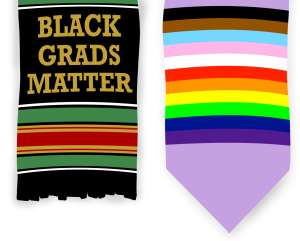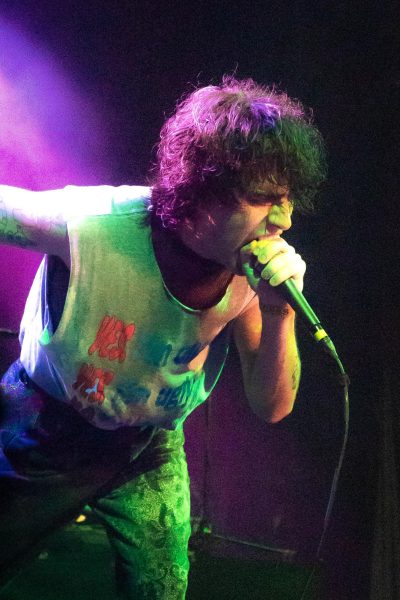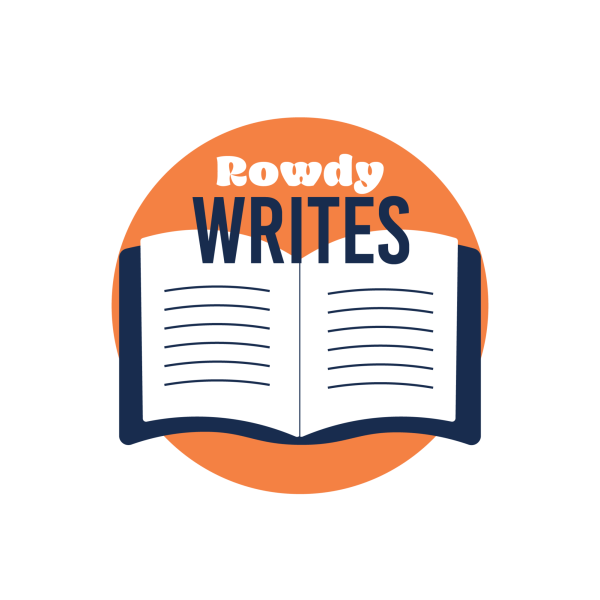Paisano Poets
Appreciation For Depression – Era Lessons
April 23, 2020
SAN ANTONIO
Dear Dad –
Thank you for teaching us how to live through Coronavirus / COVID-19 in 2020.
You did not know in the 1970s that you were instructing us, oblivious Baby Boomers that we were.
Some examples:
You made us re-use plastic wrap and foil, delicately rinsing the uncooperative 20th Century coverings with dish soap and water.
“Ick,” we replied at such a silly idea.
You once even called a family meeting to explain how we could get by after being “indisposed” by simply using a single square of single-ply toilet paper.
“Yuck!” we exclaimed, mortified, as we vaguely recalled the cardboard-like substance from our childhoods as Army brats stationed in post-World War II West Germany.
We had each snickered in history classes when our prim teachers taught about outhouses and corncobs as restrooms of old. Our oh-so delicate bottoms could not imagine this offensive act you proposed.
You harangued us to turn out lights.
Once, when I was studiously styling my hair with a hot new curling iron – we all wanted to have “Charlie’s Angels” television-show “feathers” – I saw your strong, tan hand slither past in the mirror, stealthily reaching between the nearly closed door to press the switch off.
My head tilted slightly left, as half of my hair, swooped to resemble Farrah Fawcett’s, quirked like the ears of a dog trying to comprehend its master’s orders.
“Dad?”
By then, you had already slipped away, a gigawatt cat burglar.
I stood silent, blue-cream eye shadow seeping with each blink adjusting to the darkness.
You were not an Earth Day environmentalist; you were trying to save money because you had recalled not having enough.
You lectured us on how much we could reduce our monthly heating and air-conditioning bill by reducing the setting by a single degree.
“But it’s the electric age,” we responded.
When my sisters and I cried that we would be uncomfortable with such extreme climate control, you said we could adjust our clothing accordingly: an extra sweater in winter, a pair of shorts, sandals in summer.
It was possibly then that we almost loathed you and your beastly ideas.
Yet all so very wise – and practical – in retrospect.
There was the time you, not wanting to spend money on a leveler when building a wooden frame outside, took a jar and filled it with water to eyeball it.
“Cheap,” we called you.
“He doesn’t get it,” we said.
“He’s so embarrassing,” I am sure we each said more than once.
“It’s not the 1930s anymore.”
Truth be told, you got “it” more than most. And you spoke with one voice for the Depression-era generation.
You knew food insecurity and your stomach growled periodically for more than a decade.
Having been born in 1930 in San Antonio to an itinerant salesman and stay-at-home mom with a milk cow, you regaled us with stories of your bike route for the daily newspaper, now the San Antonio Express-News.
You started working at 10, you said.
Insert eyeroll here. “We don’t have to do that.”
But you had to tell your stories, fables for we who were part of what then was increasingly dubbed, “the Me generation.” As in “all about.”
Braces for your teeth meant sleeping face down on a wooden plank – all night. Your father, Ross, who had nearly frozen to death as a Navy man during the Great War, said pearly whites enhanced by baking soda would be worth it getting a job, or charming the ladies. Elbow nudge, and another nudge.
He knew a few degrees of warmth could mean the difference between a pay check and not, and a wife, pretty handy to have around. And your father never was late or called in sick — until the day he died en route on a San Antonio bus, some other advice passed down the ages.
In fact, your lessons – your Mary Poppinsesque bag of helpful hints – came from the previous generations, a wave of immigrants who thought the only way to enjoy the American Dream was to coax it each day.
Your mother, Linnie Luckenbach Toepperwein, forged forehead worry lines, teased meals from the chickens by the half ounce. Although she and her brood, with you, lived near Roosevelt Street in a small neighborhood of clapboard houses, she was quite the urban farmer, planting vegetables, including peas from which she could divine a delicious soup. Coffee was a luxury, watered down and consumed until the last drop. Grounds could be used again and again.
Inside, she made logs by rolling up and rubber-banding old newspapers for sale, saving some – yes – for toilet paper.
She made soap from lye, not sweetly scented, but like lava soup, capable of scrubbing the dirt off the hardest of physical laborers, which they were, holding that household together. She saved old buttons, centesimal pieces of thread, patches of old fabric, anything as possible currency.
“Life is so hard,” she said then, and into her nineties.
She fretted about your father’s drinking (before anti-anxiety medication) and focus. Although your oldest brother Norman was the dashing favorite, she was relieved when he went off to World War II as a Marine for “three hots and a cot” – their version of meal security and a home.
You then felt the pressure of being the second-born son to help around the house and bring in money as your mother discovered an unanticipated pregnancy just after Pearl Harbor, further complicating family finances.
“Mouths to feed,” you and your two siblings were.
“Mouths to feed,” you sometimes called us.
You dreamed of joining the military, but were too young at Jefferson High. You were itching to fight – and get some of those hot meals.
Your child became part of ours, and we had to get sandwich fixings from what you called the day-old bread store as you continued our seasoning. So when I first tasted a soft, likely unhealthy piece of white bread, I felt like Marie Antoinette scoffing at the peasants.
And because of your actual hunger, you yearned for a better life, the next stage of that so-called American Dream: an education. So you graduated St. Mary’s ROTC and had the accoutrements of success, beyond a crisp uniform, spit-shined shoes, a Purple Heart in the medal “salad” upon your chest and – ultimately – a lieutenant-colonel’s oak leaf.
You built us an all-brick coveted “Hughes Home” house in the Alamo City suburbs with four bedrooms, a living room, a family room, and then enclosed the garage as our, “Stube,” German for room.
There we had parties and played records.
Oh, you even tacked on a small bathroom. With plenty of toilet paper.
Yet for all the material goods your service in Korea and Vietnam brought, middle-class affluence had a side effect.
While we slept soundly in our abundance, at night through the chimes of two grandfather clocks, you would walk the house perimeter, fearing, at times, someone might come steal it all.
We dismissed your behavior as the training – from both your upbringing and life in artillery.
We had no word for PTSD, from hunger and from fighting Communists with a hunger of their own.
Oh, how wrong we – I – were to so harshly judge you as a relic of the past, Edward Ross Hicks: German-Irish-Cherokee-English “mutt” that you were sometimes called in the small segregated town that this was.
You recalled how the hungriest of Americans were willing to steal to feed their families. You added extra barriers to the sliding doors, and you built an arsenal, part antique show pieces as guest conversation pieces, one loaded .22 in your nightstand.
Thank you, Dad, for trying to shield us.
For sharing your work ethic and sending us to college.
For providing used cars and footing the insurance bill.
For indulging our not-so-subtle snarky quips and facial expressions.
Much is made of Millennials not appreciating us Boomers, but it is we who need to remember how casually we dismissed the lessons of the Depression- and World War II and Cold War-era generations who came before.
We, too, could be so focused on the future, we forgot to look at the past.
We figured the world was tailor-made for us and we would not see such want again. It was part of the past, and we would fix the world so it wouldn’t happen again.
It would, and it did.
In a terrifying microbe called Coronavirus / COVID-19.
Just the other day, I was about to throw-away a paper printout here in my shelter-in-place home office. I the paused, dear Dad.
I wish you here now to tell you what happened.
I cut it neatly into four squares and viola: note-paper for a grocery or to-do list.
And, in light of recent hoarding, it included a bullet point for buying, what else? Toilet paper.
Thanks, Dad. Thanks to your generation for sharing what became invaluable operating instructions for moments like these, as we hang on to work to live, and onto life.
We Boomers and our Millennial children could stand some more think-it-through stories.
It comes belatedly, but “better late than never” – one of your favorite maxims.
I wish you were alive today for a heart-felt salute.











Beth L Walsh • Apr 25, 2020 at 1:26 pm
What a beautifully written salute to your father. Each generation contributes something different.
Lesli Hicks • Apr 23, 2020 at 7:54 pm
Thank you for sharing the good news about campus health through Josh Peck’s cover story.
And thank you for allowing the wisdom of Ed Hicks to shine through fourteen years after his passing.
This is a time when we are joined in hope and comfort.
Kindest regards,
Lesli L. Hicks
Paisano 1983, when we used to actually cut and paste the monthly newspaper for printing.